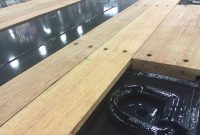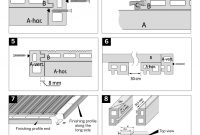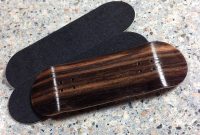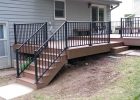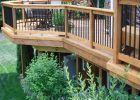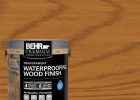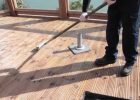Wood Deck Fasteners
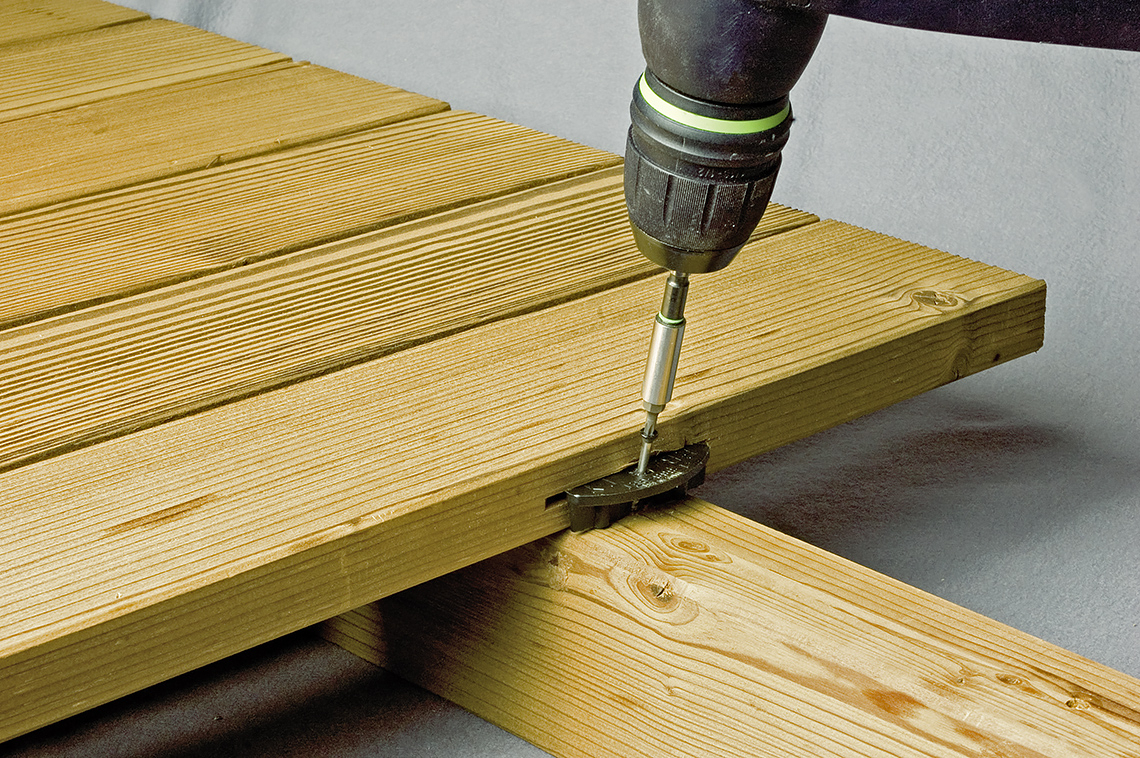 Hidden Deck Fasteners For Pressure Treated Wood Decks Ideas for proportions 1140 X 758
Hidden Deck Fasteners For Pressure Treated Wood Decks Ideas for proportions 1140 X 758The Ultimate Guide to Choosing the Best Wood Deck Fasteners for Your Home
Wood Deck Fasteners – The deck is an essential aspect of every home, providing a space for relaxation, entertainment, and outdoor enjoyment. Whether building a new deck or renovating an existing one, choosing the right wood deck fasteners is crucial for its longevity and structural integrity. The plethora of options available in the market can be overwhelming, especially for first-time homeowners. This comprehensive guide will explore the various types of wood deck fasteners and provide valuable insights on choosing the best one for your home.
Understanding Wood Deck Fasteners
Wood deck fasteners are the hardware components that secure the deck boards to the underlying framework. They play a vital role in ensuring the deck remains sturdy and safe. Understanding the different types of wood deck fasteners will help you make an informed decision.
Types of Wood Deck Fasteners
- Nails: Nails have long been a popular choice for deck construction. They are economical, easy to install, and provide sufficient holding power. However, nails may not offer the same level of strength as other fasteners and can be prone to loosening over time.
- Screws: Screws have gained popularity due to their superior holding power and durability. They offer a strong connection between the deck boards and the underlying structure, minimizing the risk of boards coming loose or warping. Additionally, screws can be easily removed or replaced if needed.
- Hidden Clips: Hidden deck fasteners provide a seamless, screw-free surface, enhancing the aesthetics of your deck. These fasteners are designed to be concealed between the deck boards, resulting in a clean and polished look. Hidden clips also allow for the natural expansion and contraction of the wood, reducing the risk of warping or splitting.
Factors to Consider
When selecting the right wood deck fastener for your project, several factors should be taken into account:
- Material: Consider the material of the fastener and its compatibility with the wood you’re using. Stainless steel fasteners are highly recommended due to their corrosion resistance and longevity.
- Durability: Assess the durability of the fastener to ensure it can withstand outdoor conditions, such as exposure to moisture, sunlight, and temperature variations.
- Cost-effectiveness: Evaluate the cost of the fasteners about their quality and lifespan. While it may be tempting to opt for cheaper alternatives, investing in high-quality fasteners will save you money in the long run.
Nails as Wood Deck Fasteners
Nails have been used for decades in deck construction due to their affordability and ease of installation. However, there are certain considerations when using nails as deck fasteners.
Advantages of Using Nails
- Affordability: Nails are generally less expensive than screws or hidden fasteners, making them a budget-friendly option.
- Ease of Installation: Nailing is a straightforward process that requires minimal tools and expertise. This makes it suitable for DIY enthusiasts or those with limited construction experience.
Types of Nails Used in Deck Building
Smooth Nails
Smooth nails are the most common type of nail used in deck building. They have a plain surface and provide a neat appearance. They are commonly used for general deck construction where appearance is not a primary concern.
Ring-Shank Nails
Ring-shank nails feature rings along the shank, which enhance their holding power. They provide better resistance to withdrawal and are less likely to loosen over time. Ring-shank nails are a good choice for deck framing and other applications requiring high holding power.
Spiral Nails
Spiral nails, also known as threaded nails, have spiral threads along the shank. These threads improve the nail’s holding power and reduce the pullout risk. Spiral nails are a good choice for decking, railings, and other applications requiring high holding power and resistance to withdrawal.
In addition to these three types of nails, several other specialized nails can be used in deck building. These include:
Galvanized nails are coated with a layer of zinc to protect them from rust. They are a good choice for decks that are exposed to the elements.
Stainless steel nails are resistant to rust and corrosion. They are a good choice for decks located in coastal areas or other areas with a high risk of rust.
Finishing nails have small heads and thin shanks. They are used for trim work and other applications where a smooth appearance is desired.
The type of nail that you use for your deck will depend on the specific application. For general deck construction, smooth nails are a good choice. Ring-shank or spiral nails are a good option for applications with high holding power. And finishing nails are a good choice for applications where appearance is important.
Considerations for Nails
When using nails as deck fasteners, consider the following:
- Nail Thickness: Select nails with sufficient thickness to prevent bending or breaking during installation.
- Nail Length: The length of the nail should be appropriate for the thickness of the deck boards and the underlying structure. It should penetrate both securely without protruding.
- Head Shape: Different nails have various head shapes, such as flat or domed. Choose a head shape that aligns with your preferences and the overall aesthetic of your deck.
Screws as Wood Deck Fasteners
Screws offer several advantages over nails when it comes to deck construction. They provide a strong and secure connection between the deck boards and the underlying framework.
Advantages of Using Screws
- Superior Holding Power: Screws offer better power than nails, ensuring a tight grip between the deck boards and the supporting structure.
- Durability: Screws are less prone to loosening over time, providing a long-lasting and secure deck.
Types of Screws Used in Deck Building
Stainless Steel Screws
Stainless steel screws are highly recommended for outdoor applications. They are resistant to corrosion, ensuring the longevity of your deck.
They are available in a variety of sizes and lengths to accommodate different deck building needs.
Stainless steel screws are more expensive than other types of screws, but they are worth the investment for the added durability and longevity.
Coated Screws
Coated screws feature a protective coating that enhances their resistance to rust and corrosion.
They are available in a variety of colors to match the deck boards and create a visually appealing finish.
Coated screws are a good option for budget-minded homeowners who want the benefits of corrosion resistance without the higher cost of stainless steel screws.
Structural Screws
Structural screws are designed to bear heavy loads and provide maximum strength.
They are commonly used for attaching critical components, such as ledger boards and support beams.
Structural screws are made from high-strength materials, such as galvanized steel or stainless steel.
They have a large, coarse thread that provides a strong grip in the wood.
The type of screw that you use for your deck will depend on the specific application. For general deck construction, coated screws are a good choice. Structural screws are a good option for applications with high holding power. And stainless steel screws are a good choice for applications where appearance is important.
Considerations for Screws
When selecting screws for your deck, consider the following factors:
- Length: Choose screws that are long enough to penetrate the deck boards and securely anchor them to the underlying structure.
- Diameter: The diameter of the screws should be appropriate for the thickness of the deck boards. Thicker boards may require larger diameter screws for optimal holding power.
- Thread Type: Screws come with different thread types, such as coarse or fine threads. Coarse threads are generally recommended for wood decks due to their superior gripping ability.
- Head Shape: Similar to nails, screws have different head shapes, including flat, bugle, or pan heads. Select a head shape that complements your deck’s design and offers a flush or countersunk finish.
Hidden Deck Fasteners
Hidden deck fasteners are an excellent choice for those seeking a clean and seamless deck surface. These fasteners are designed to be concealed between the deck boards, resulting in a visually appealing and smooth finish.
Advantages of Hidden Fasteners
- Aesthetics: Hidden fasteners eliminate visible screws or nails, creating a sleek, polished deck surface.
- Reduced Maintenance: With hidden fasteners, there are no exposed fastener heads to collect dirt or debris, reducing the maintenance required to keep your deck clean.
Types of Hidden Deck Fasteners
Edge-Mounted Clips
- Edge-mounted clips are installed along the sides of the deck boards, securing them to the joists.
- These clips provide a consistent gap between the boards, allowing for natural expansion and contraction.
- Edge-mounted clips are a good option for decks made from composite decking materials, as they do not require pre-drilling.
- Some popular brands of edge-mounted clips include Camo Hidden Fasteners, EB-TY, and Tiger Claw.
Groove-Mounted Clips
- Groove-mounted clips are inserted into grooves on the sides of the deck boards, creating a hidden attachment.
- They offer a clean finish without any visible fasteners.
- Groove-mounted clips are a good option for decks made from wood decking materials, as they require pre-drilling.
- Some popular brands of groove-mounted clips include Trex Hideaway, Cortex, and ConceaLoc.
Screws
- Some hidden fastener systems use specially designed screws driven through the sides of the deck boards at an angle, securing them to the underlying structure.
- These screws are then covered by the adjacent board, hiding them from view.
- Screw-based hidden fastener systems are a good option for decks made from composite and wood decking materials.
- Some popular screw-based hidden fastener systems brands include Camo Marksman, TimberLok, and Mantis.
The type of hidden fastener you use for your deck depends on the specific application. Edge-mounted clips are a good option for decks made from composite decking materials. For decks made from wood decking materials, groove-mounted clips or screw-based hidden fastener systems are good options.
Considerations for Hidden Fasteners
When considering hidden deck fasteners, keep the following factors in mind:
- Type of Wood: Different types of wood have specific requirements for hidden fasteners. Ensure that the chosen fastener is compatible with the wood you use for your deck.
- Durability: Hidden fasteners should be durable and able to withstand outdoor elements, ensuring the long-term integrity of your deck.
- Compatibility with Spacing: Some hidden fastener systems require specific spacing between the deck boards. Ensure that the chosen fastener is compatible with your desired spacing.
Selecting the Right Wood Deck Fastener
Selecting the right wood deck fastener requires careful consideration of various factors. To help you make an informed decision, here are some key points to keep in mind:
- Material Compatibility: Consider the type of wood you use for your deck and ensure that the chosen fastener is compatible. Different woods may require specific fasteners to prevent corrosion or damage.
- Quality and Durability: Evaluate the quality and durability of the fasteners by considering factors such as material, corrosion resistance, and manufacturer reputation. Investing in high-quality fasteners will ensure the longevity of your deck.
- Deck Board Type: The deck board you choose, such as hardwood, softwood, or composite, may influence the fasteners you should use. Some materials may require specific fasteners for optimal performance and appearance.
- Budget Considerations: While investing in high-quality fasteners is essential, consider your budget and choose options that provide the best value for money in terms of performance and longevity.
Conclusion
Selecting the right wood deck fasteners is a crucial step in ensuring your deck’s longevity and structural integrity. Whether you choose nails, screws, or hidden fasteners, understanding the factors influencing the selection process will help you make an informed decision. Evaluate each option based on material compatibility, durability, and cost-effectiveness. By following the guidelines in this article, you’ll be well-equipped to choose the best fasteners for your specific deck-building project. Remember, a well-built deck with the right fasteners will provide years of enjoyment and add value to your home.
